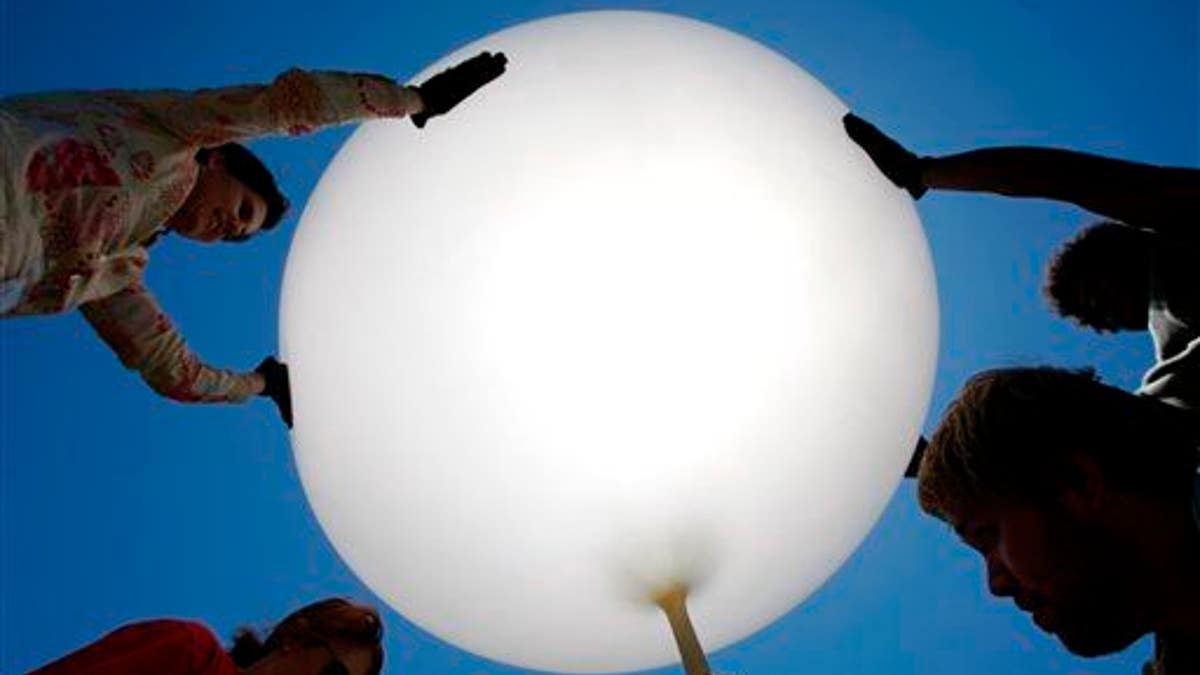
Students and staff at the University of Houston put helium in a weather balloon that was launched into the skies as part of the UH Earth Day Carnival on April 22, 2009, in Houston. (AP Photo/Houston Chronicle, Julio Cortez)
What scientists are calling a "game changer" for society has been discovered deep in Tanzania's Rift Valley: a massive helium gas field with enough of the precious commodity to fill more than 1.2 million MRI scanners, Phys.org reports.
Besides the sheer amount of gas, the discovery is notable because it appears to be the first time that stores of helium have been purposely found (they're usually stumbled upon during oil and gas drilling).
And the find, which will be presented Tuesday by Durham University PhD student Diveena Danabalan at a Japanese geochemistry conference, could help restock nearly depleted stockpiles.
Researchers figure there's about 54 billion cubic feet of helium in just one section of the valley. To put that in context, the Federal Helium Reserve in Texas, which supplies more than 40% of domestic helium needs and contains about 30% of the world's total helium supply, right now holds about 24.2 billion cubic feet, per Live Science.
"It could be substantially larger," researcher Jon Gluyas says. "This is a globally significant discovery." The scientists from Durham, working with Oxford University counterparts, used a new method of gas exploration to track down the Rift Valley helium, studying volcanic activity in the region, as well as how intense heat from that activity works to release helium trapped in the Earth's crust, and then pinpointing which sites would likely prove to be plum drilling sites, much like those looking for oil would do.
The problem arises when the helium-storing rocks are too close to the volcanoes—meaning the helium will be mixed in with and diluted by volcanic gases—so now the researchers' next goal is to find the sweet spot (or, as Danabalan puts it, the "Goldilocks zone") "where the balance between helium release and volcanic dilution is 'just right.'" (Danabalan has been on the hunt for helium for some time.)
This article originally appeared on Newser: 'Game Changer': Giant Helium Field Found
More From Newser




















